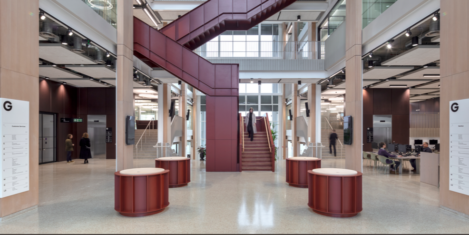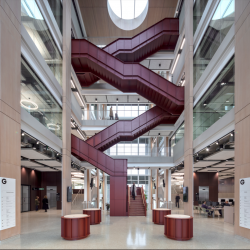November 1, 2022
Quiet quitting is not a thing, but employers do need to offer more fulfilling work
 A new survey from Ricoh Europe claims that the majority of workers seek more stimulation and creativity in their job, suggesting that employers need to do more to provide fulfilling work. The research, conducted by Opinium for Ricoh Europe, polled 6,000 workers and 1,500 decision makers across the UK, Ireland, France, Germany, Italy, the Netherlands and Spain. It claims to contradict the idea of quiet quitting with 82 percent of workers describing themselves as ‘engaged’ at work, while 65 percent say they are enthusiastic about what they do. Yet while workers feel content to a degree, there remain frictions and roadblocks to them becoming more productive and creative. (more…)
A new survey from Ricoh Europe claims that the majority of workers seek more stimulation and creativity in their job, suggesting that employers need to do more to provide fulfilling work. The research, conducted by Opinium for Ricoh Europe, polled 6,000 workers and 1,500 decision makers across the UK, Ireland, France, Germany, Italy, the Netherlands and Spain. It claims to contradict the idea of quiet quitting with 82 percent of workers describing themselves as ‘engaged’ at work, while 65 percent say they are enthusiastic about what they do. Yet while workers feel content to a degree, there remain frictions and roadblocks to them becoming more productive and creative. (more…)











 An idea that has never really gone away, but which seems to be enjoying a new lease of life is the tabula rasa. The conception of people as a blank slate is something a that has crept back into mainstream political and social thought for a variety of reasons. Arguably, it is also behind many of the most misleading notions about work and workplace design, perhaps most importantly that a change to some single element or characteristic of a working environment will lead to a specific outcome in the behaviour of people.
An idea that has never really gone away, but which seems to be enjoying a new lease of life is the tabula rasa. The conception of people as a blank slate is something a that has crept back into mainstream political and social thought for a variety of reasons. Arguably, it is also behind many of the most misleading notions about work and workplace design, perhaps most importantly that a change to some single element or characteristic of a working environment will lead to a specific outcome in the behaviour of people. 
























October 19, 2022
Remote workers can find it hard to switch off. There’s now an app for that
by Anthony Thompson • Comment, Flexible working, Wellbeing